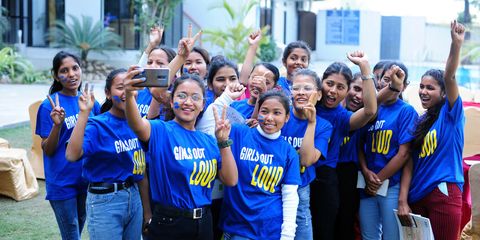Tarani from quiet bystander to hero dad
This Father’s Day, we honour fathers like Tarani, who have transformed from bystanders to hands-on parents, playing, caring, and supporting their children while challenging traditional gender roles.
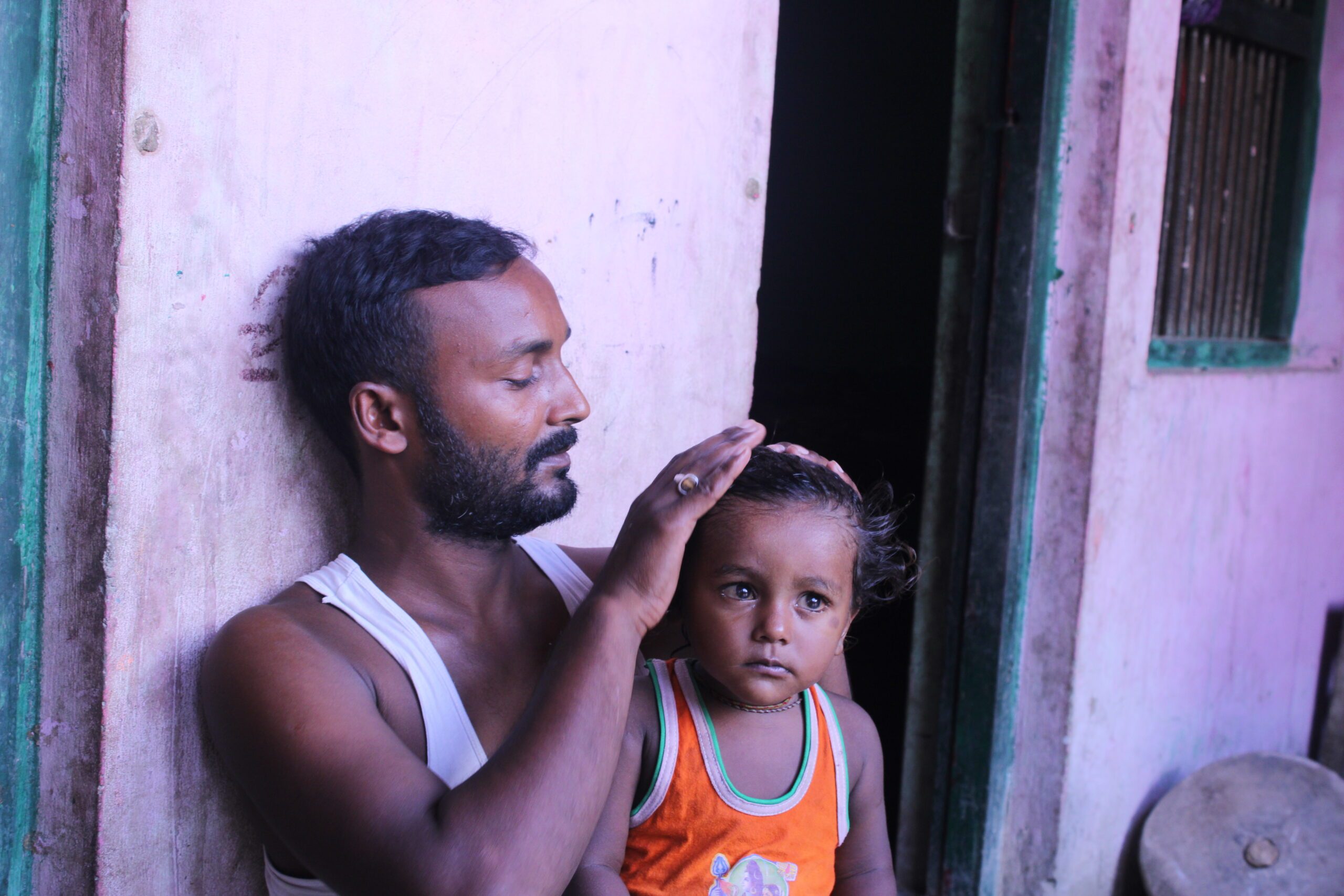
In Dhanusha, where parenting roles are often divided strictly along gender lines, fathers are usually seen only as providers, not caregivers. But in one small household in Kamala Municipality, three children are growing up in a home where their father is their biggest supporter, protector, and playmate.
Tarani, 30, has a six-year-old daughter, a two-year-old son, and a five-month-old baby girl. Not long ago, he left all childcare to his wife while he worked outside the home. His children rarely experienced his presence beyond short greetings at the end of the day.
“I thought my only job was to earn money,” Tarani says. “I never imagined my children needed me for more than that.”
He further adds, “Everything changed when I joined the parenting education sessions. The sessions encouraged fathers like me to rethink our role, showing how our love, time, and involvement shape children’s health, happiness, and future.”
“I thought my only job was to earn money. I never imagined my children needed me for more than that.”
Tarani, a father
Putting children at the centre
From the very first sessions, Tarani began to see parenting from a new perspective, one where children’s needs, rights, and well-being come first. He learned that equal parenting benefits the whole family.
“Now I feed my children, help them wash, and spend time playing with them every day,” he says. “I can see how this makes them more confident and happier.”
The sessions also taught him that care work is not ‘women’s work’. He now shares household chores, cooks meals, and ensures his children get nutritious food. “I used to feel shy if people saw me cooking or feeding the baby,” Tarani admits. “Now I am proud to do it because it keeps my children healthy.”
Tarani shared, “I also realised that children learn from example.” By treating his wife with respect, sharing responsibilities, and caring equally for his daughters and son, he is teaching them that love and equality are family values. “When my son sees me helping his sister with homework, or when my daughter sees me cooking, they learn that men and women can do the same things,” he says.
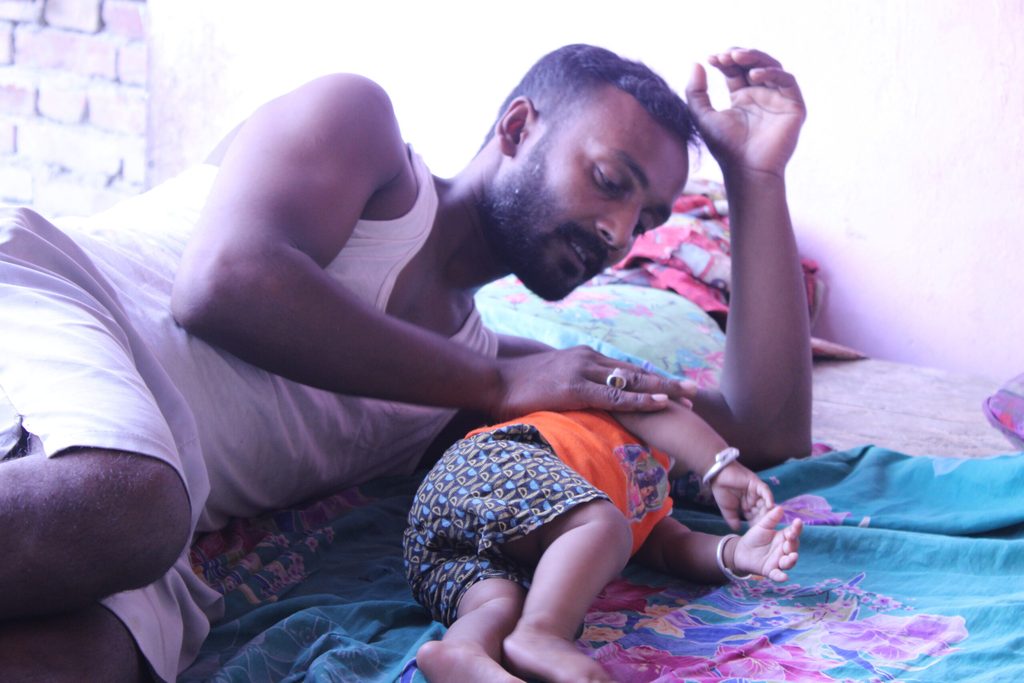
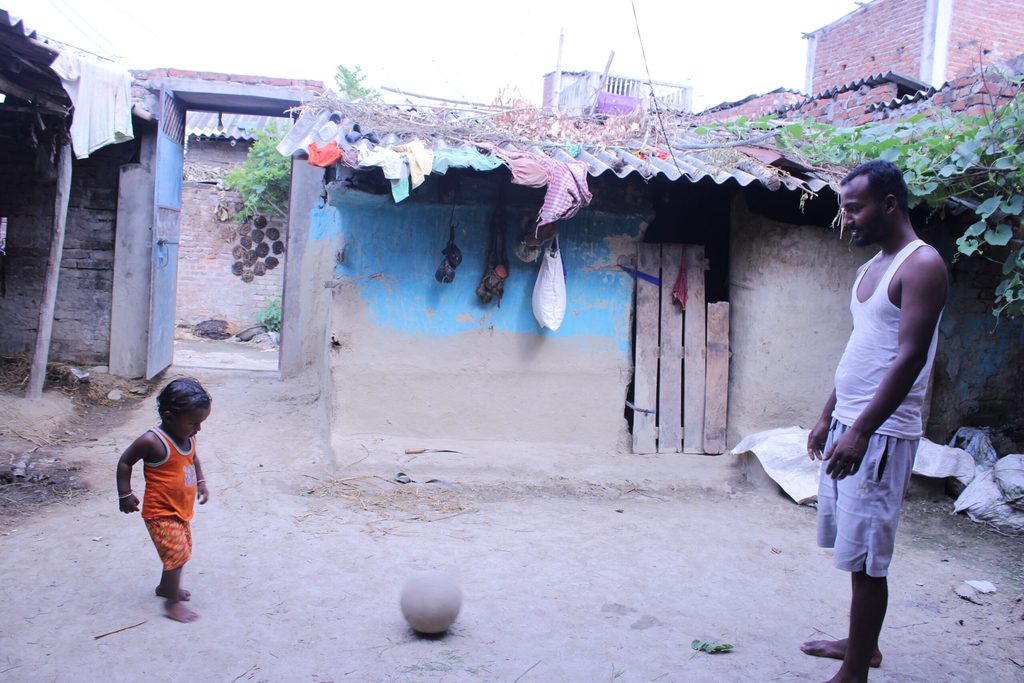
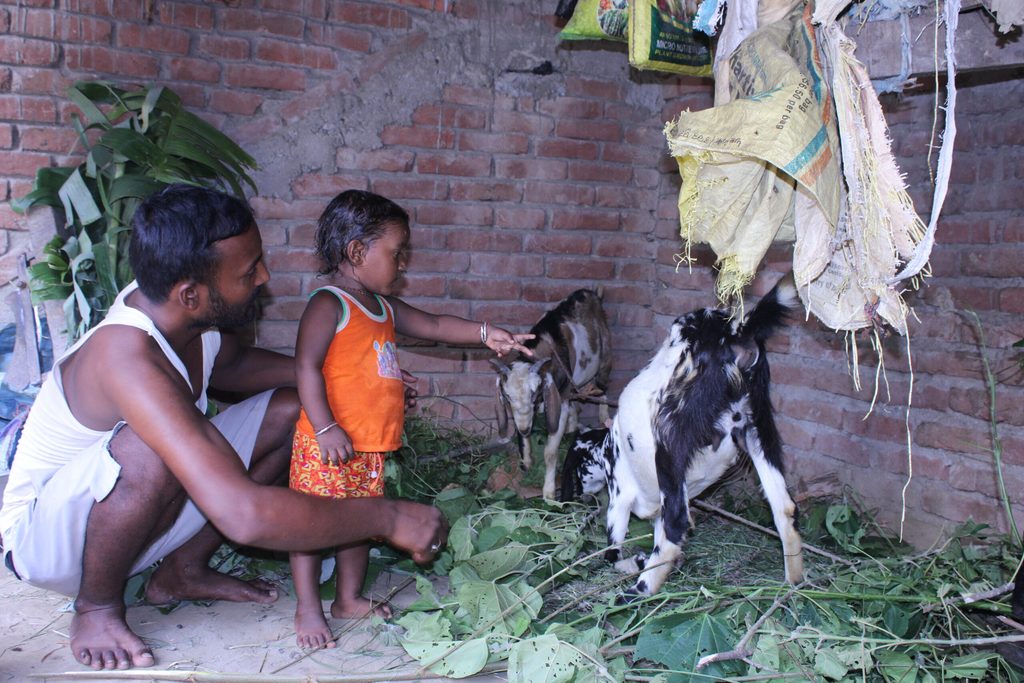
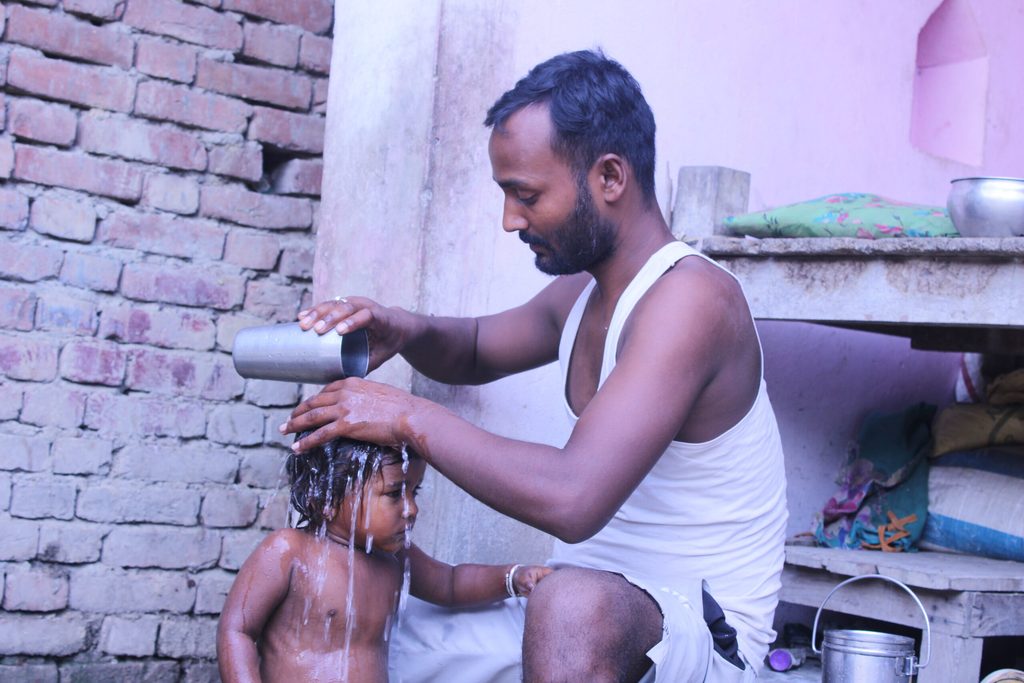
Creating a safe and nurturing home
Today, the children’s days are full of small but important moments with their father playing football in the yard, reading picture books, or helping prepare vegetables for dinner. Tarani encourages his eldest daughter to go to school regularly, supports his son’s curiosity through games and learning activities, and cares tenderly for his baby girl.
He also learned from the sessions how support during pregnancy and early childcare benefits the whole family. “I help my wife rest, take care of the baby, and make sure everyone gets enough to eat,” Tarani says. “The house feels more peaceful now.”
His wife sees the change clearly, “My husband supports me now, shares responsibilities, and our home feels more joyful. The children get more attention and care from both of us.”
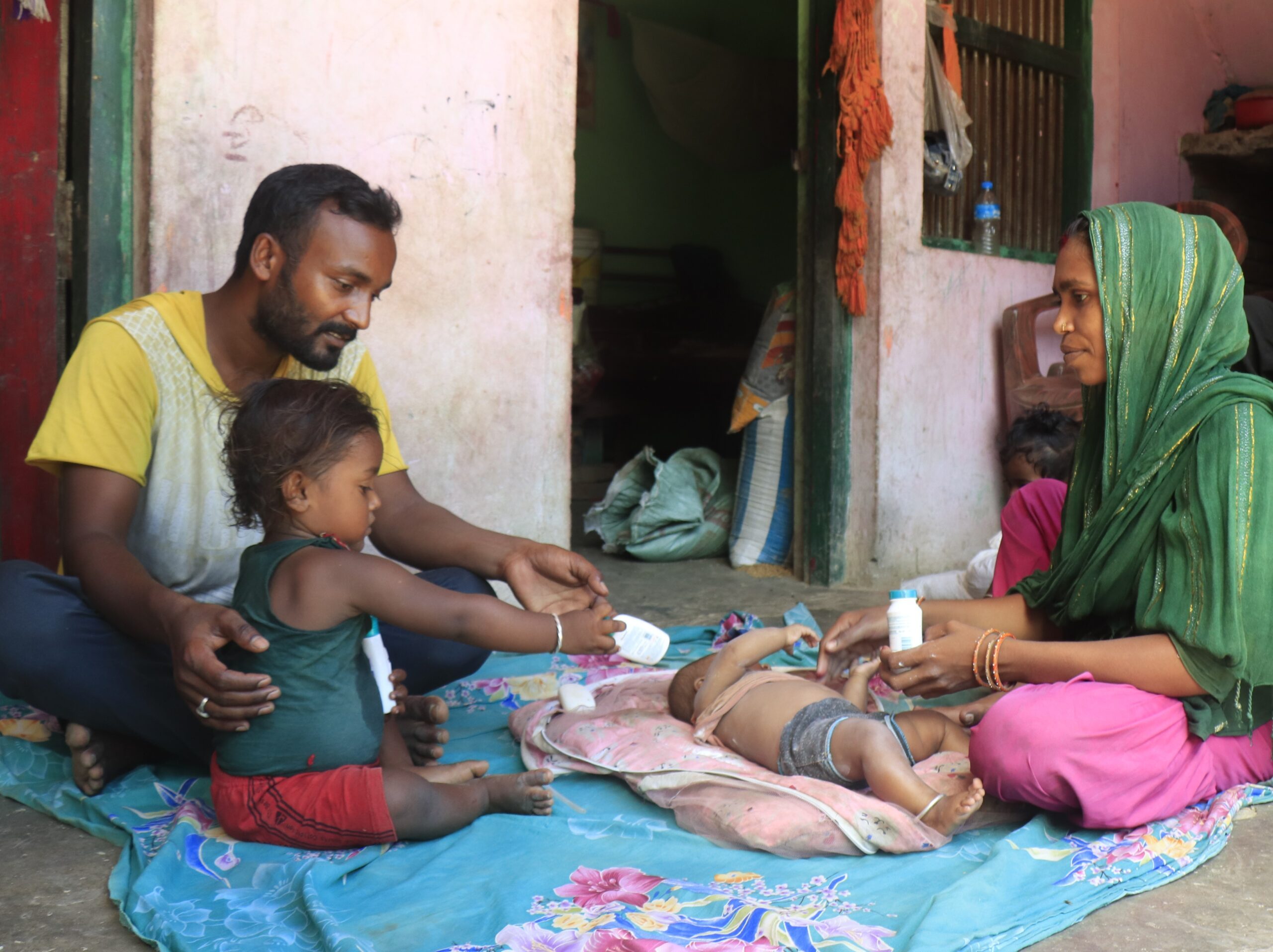
A hero dad in their eyes
When Tarani returns from work, his children rush into his arms with wide smiles, eager to play and share their day. For them, he is more than just a father, he is their role model, protector, and friend. His behaviour is showing them what respect, love, and equality look like in everyday life.
“These sessions changed how I see myself as a father,” Tarani says with pride. “Now I want all fathers to feel the same joy I do when my children laugh, learn, and grow in a safe and loving home.”
“Now I want all fathers to feel the same joy I do when my children laugh, learn, and grow in a safe and loving home.”
Tarani, a father
Tarani’s transformation has inspired other fathers in his community to get involved in their children’s lives, feeding babies, helping with schoolwork, and breaking long-held stereotypes about fatherhood. Slowly, a new picture of parenting is emerging in the community: one where mothers and fathers share the work of raising children and give them equal opportunities to thrive.
About the project
The Girls Standing Strong project, envisioned by Plan International Nepal and implemented by Support Nepal in Dhanusha, puts children, especially girls, at the heart of its mission. It works to challenge harmful gender norms, promote equality, and create environments where every child can grow up safe, healthy, educated, and free from discrimination. By placing children at the centre of change, the project ensures their voices are heard and their rights to protection, education, nutrition, and care are upheld without bias.
A key initiative within the project is the Father’s Engagement in Parenting Education Sessions, facilitated by trained health workers. These sessions inspire fathers to take an active role in their children’s lives, breaking the stereotype that childcare is solely a mother’s responsibility. Fathers learn to share household duties, provide emotional support, and create a nurturing, respectful environment. By engaging fathers as equal partners in parenting, the project strengthens families and gives girls and boys alike the chance to grow up in a home built on love, equality, and opportunity.


